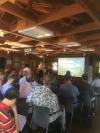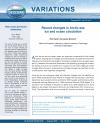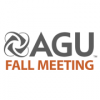All Announcements

Fall 2017 call for US CLIVAR-supported workshops
Requests are now being accepted for US CLIVAR-sponsored workshops for 2018. Submissions are encouraged from the US climate science community and their collaborators. All documents must be submitted by September 29, 2017. The next call for workshops will be in spring 2018.

Sea level conference statement
The WCRP/IOC Sea Level Conference organizers seek signatories for the conference statement, based on input from the broad community. You can read about the conference in the daily highlights and a "by the numbers" graphic.

CLIVAR-relevant sessions at 2018 Ocean Sciences Meeting
Held February 11-16, the 2018 Ocean Sciences Meeting will bring together ocean researchers and collaborators in Portland, Oregon. In preparation for the meeting, the US CLIVAR Project Office has compiled a condensed list of sessions that are relevant to the community and organized by Panels, Working Groups, and community members. The list of sessions is not intended to be exhaustive but to help digest the collection of the hundreds of sessions and events.

Variations, Summer 2017
The 2017 summer edition of Variations, with guest editor Sonya Legg (Princeton U.), is themed: "Polar ocean and sea ice interactions." This edition focuses on describing and understanding the interactions between ocean circulation and sea ice, in addition to highlighting new observational and modeling opportunities.

Sea level conference day 5 highlights
On the fifth day, conference participants — filled with four days of fascinating, relevant, and timely discussions — were able to hear about the latest modeling efforts and different scenarios for the future.

CLIVAR-relevant sessions at 2017 AGU Fall Meeting
AGU Fall Meeting will be held this year from December 11 - 15 in New Orleans. In preparation for the meeting, the US CLIVAR Project Office has compiled a condensed list of sessions that are relevant to the community and organized by Panels, Working Groups, and community members. The list of sessions is not intended to be exhaustive but to help digest the collection of the hundreds of sessions and events.

Sea level conference day 4 highlights
The conference rolled into the fourth day wrapping up the contemporary sea level presentations and beginning to address future projections. Participants also heard about the evolving requirements of integrated sea level observations for regional and local decision making.

Sea level conference day 3 highlights
Halfway through the conference, day three brought a series of presentations on the risk, adaptation strategies, and stakeholder needs for coastal zone management.

Sea level conference day 2 highlights
The second day of the conference was dedicated to presentations on contemporary sea level change, ranging from the role of ocean heat content to satellite missions to drivers of the variability of extreme sea levels.

Sea level conference day 1 highlights
The Regional Sea Level Changes and Coastal Impacts conference kicked-off on June 10, starting with past sea level rise and working towards understanding the future. Day 1 conference highlights feature keynote speakers, overview talks, and three sessions on paleo sea level data and modeling, millennial-scale ice sheet and sea level interactions, and contemporary contributions from ice sheets and glaciers.
